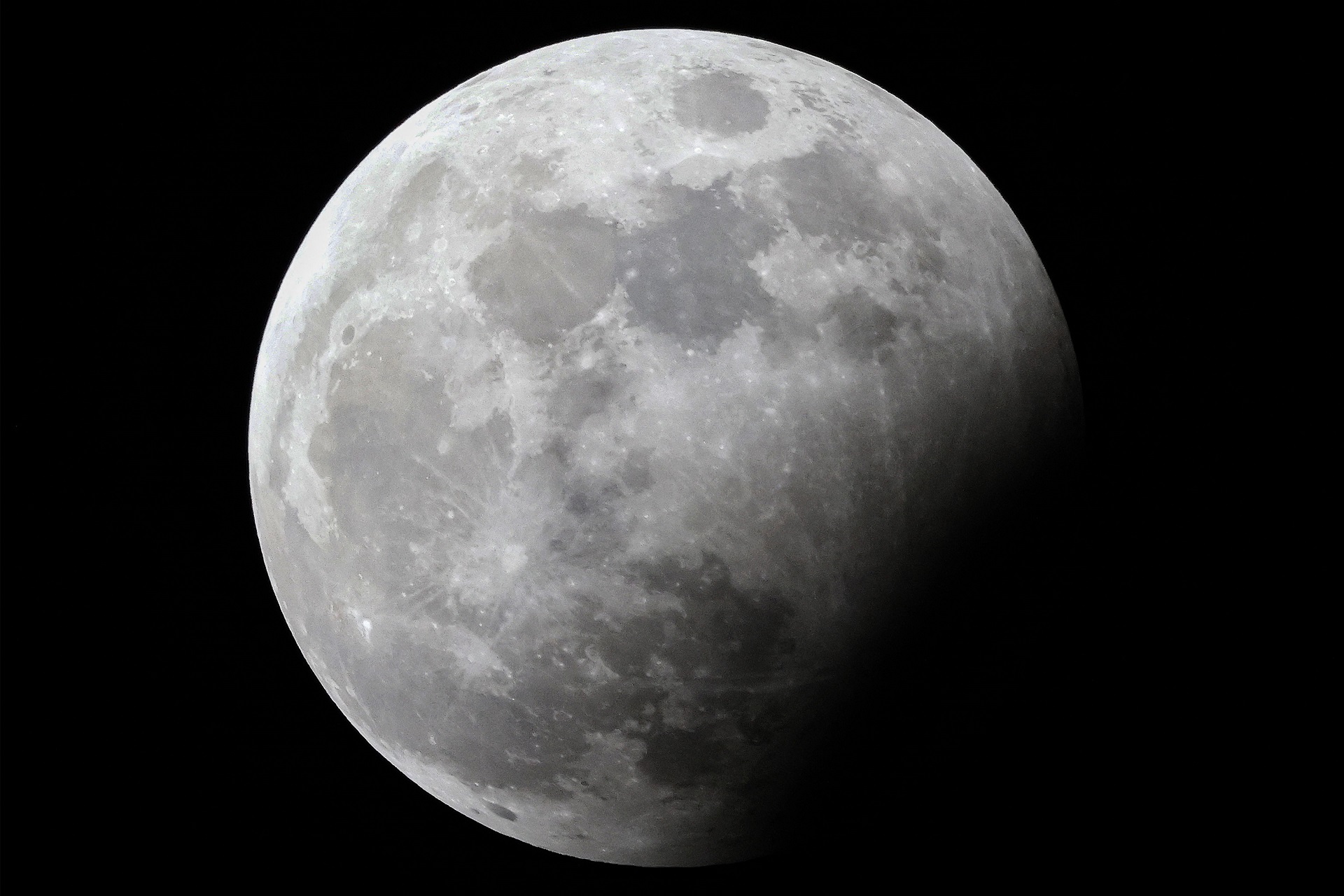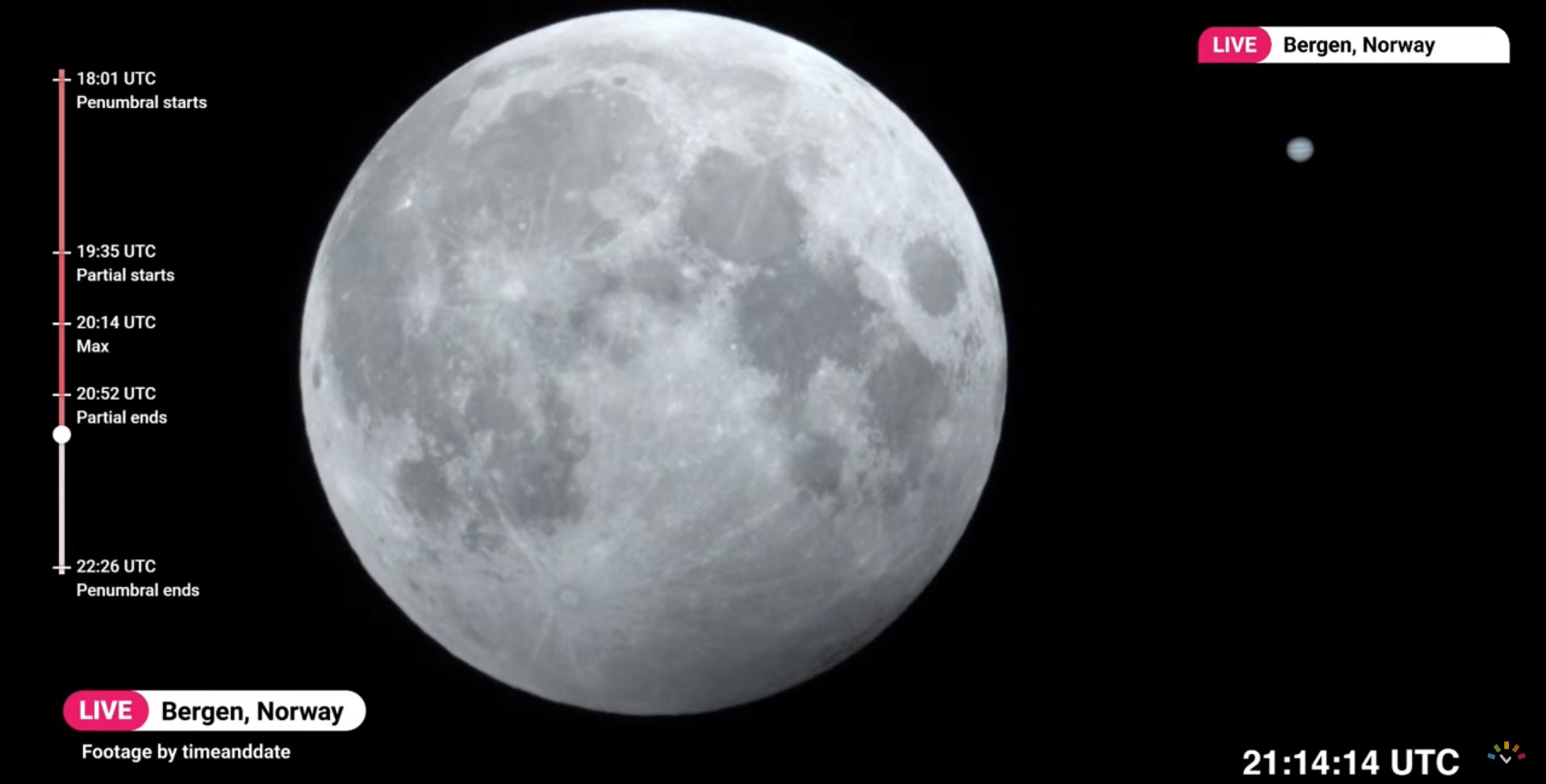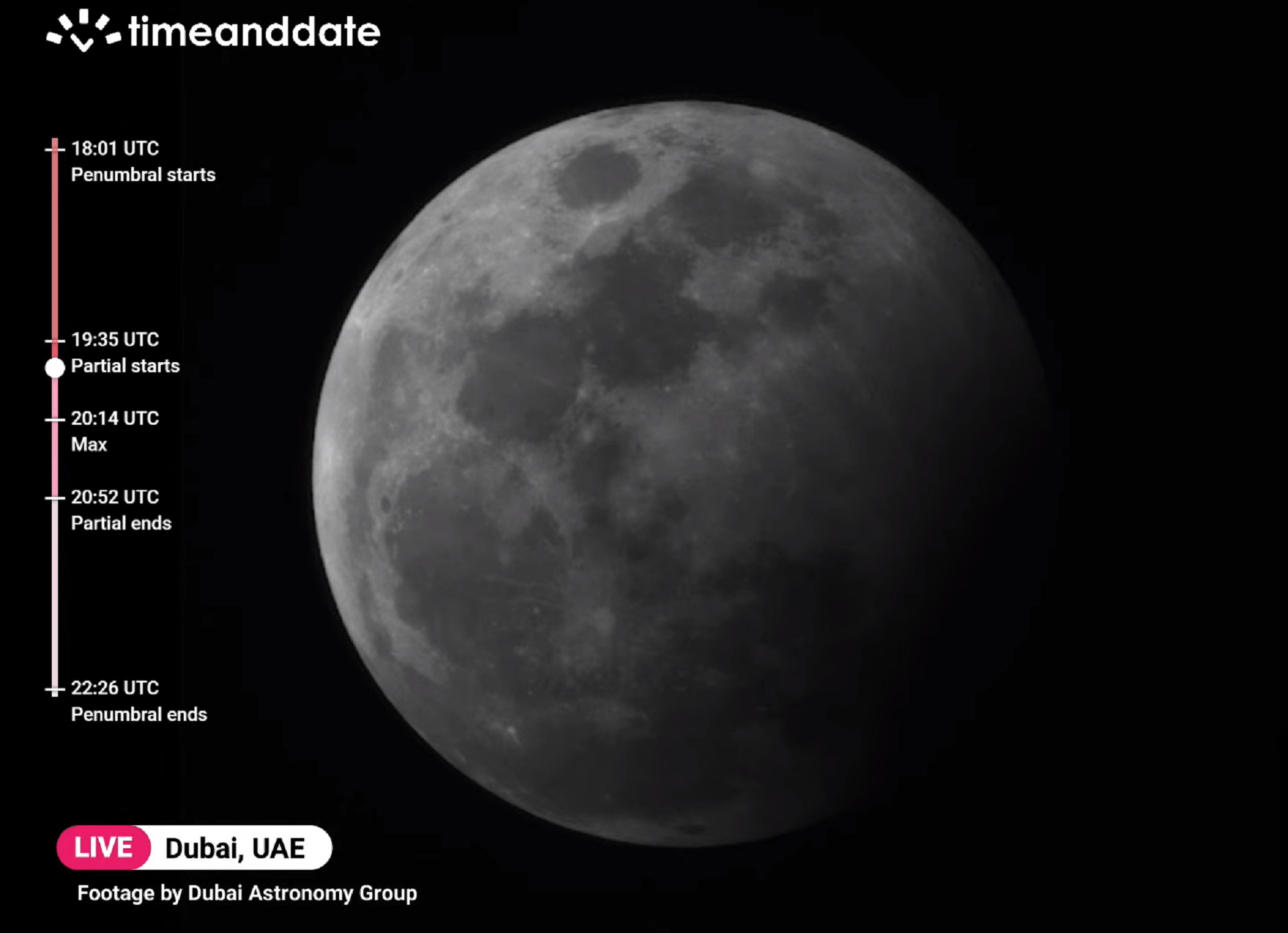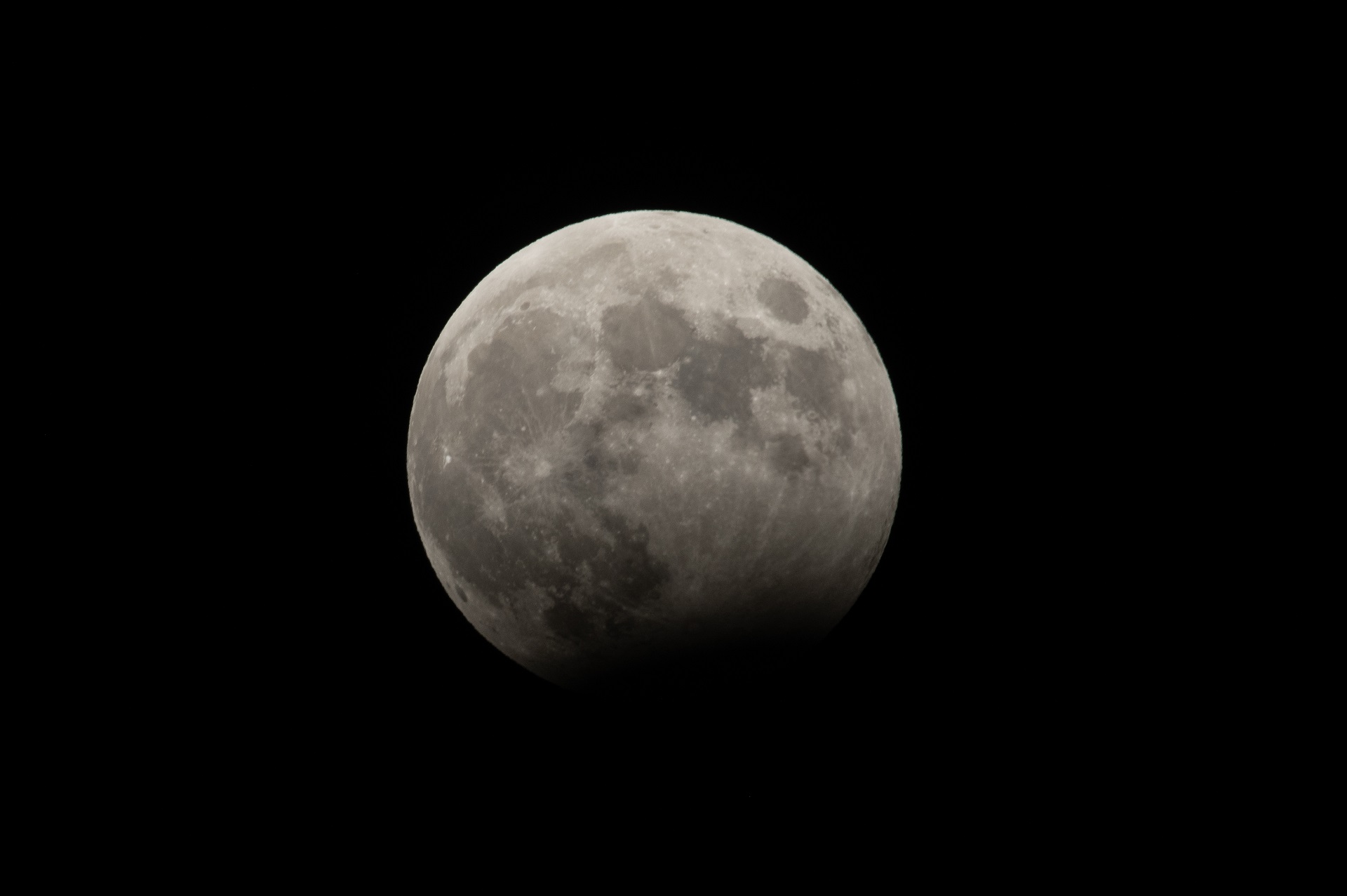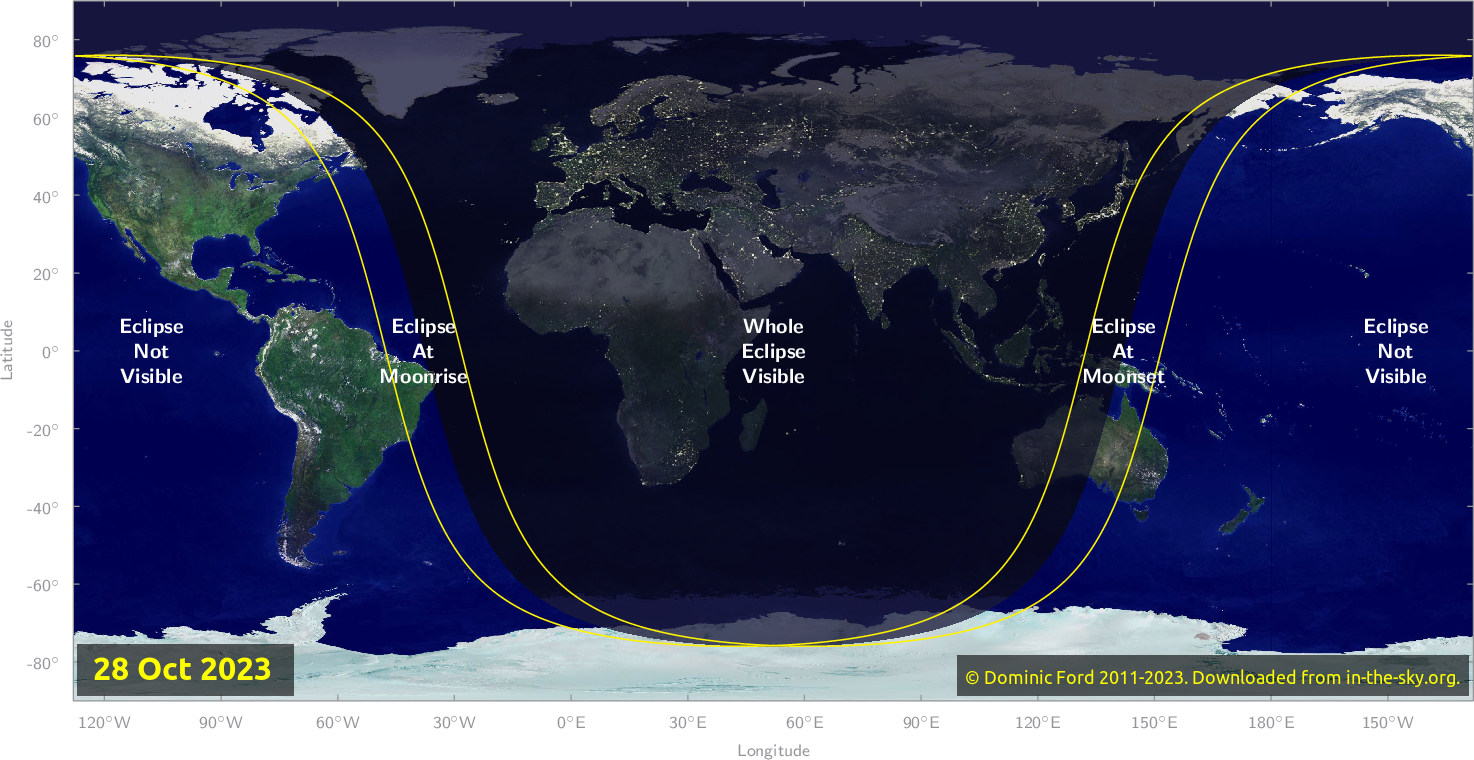Full Hunter's Moon lunar eclipse, last eclipse of 2023, an early Halloween treat for stargazers (photos)
It was the last lunar eclipse until March 2024.
Breaking space news, the latest updates on rocket launches, skywatching events and more!
You are now subscribed
Your newsletter sign-up was successful
Want to add more newsletters?

Delivered daily
Daily Newsletter
Breaking space news, the latest updates on rocket launches, skywatching events and more!

Once a month
Watch This Space
Sign up to our monthly entertainment newsletter to keep up with all our coverage of the latest sci-fi and space movies, tv shows, games and books.

Once a week
Night Sky This Week
Discover this week's must-see night sky events, moon phases, and stunning astrophotos. Sign up for our skywatching newsletter and explore the universe with us!

Twice a month
Strange New Words
Space.com's Sci-Fi Reader's Club. Read a sci-fi short story every month and join a virtual community of fellow science fiction fans!
The moon passed through part of Earth’s shadow in a partial lunar eclipse visible to potentially millions of stargazers across the Eastern Hemisphere on Saturday, offering an early skywatching treat days before Halloween.
The partial lunar eclipse of Oct. 28, the last of four eclipses of 2023 - two each of the moon and sun - occurred during October's Full Hunter's Moon, offering the spooky sight of part of the moon disappearing as it was engulfed in the darkness of Earth's shadow.
The lunar eclipse was only from the night side of Earth as our planet moved between the moon and sun. Skywatchers with clear skies could see the event from countries across Europe, Asia, Africa and parts of Australia. Some observers in select states in the U.S., like New York, Alaska, and North Carolina, were also able to catch the end stages of the eclipse. For everyone else, several livestream webcasts of the lunar eclipse showed online views from TimeandDate.com as well as from Ceccano, Italy by the Virtual Telescope Project.
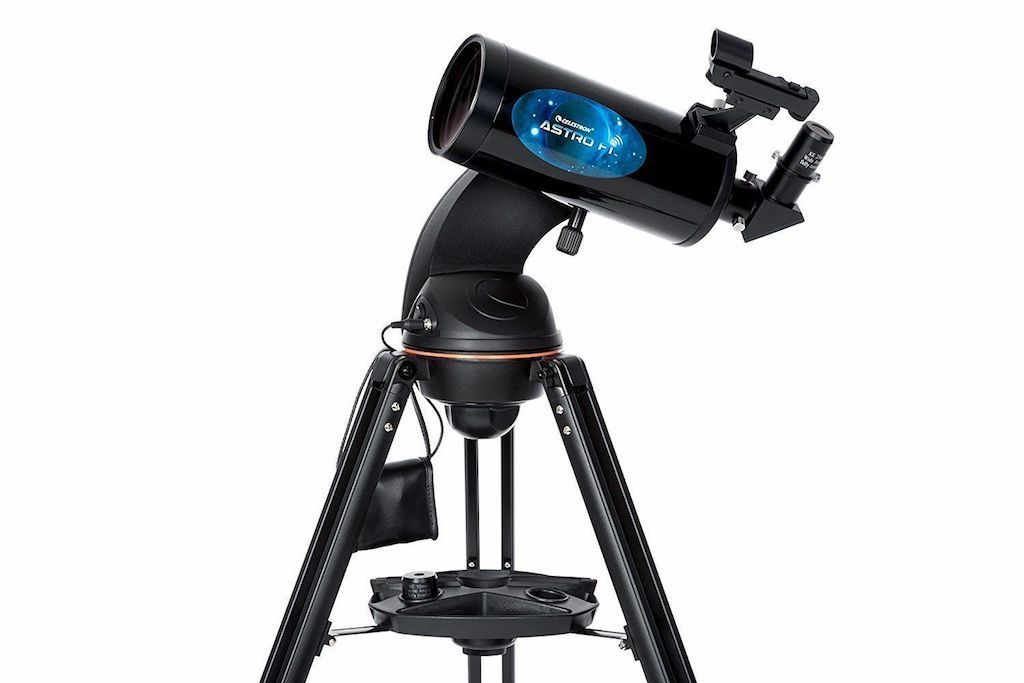
See the moon up close! We recommend the Celestron Astro Fi 102 as the top pick in our best beginner's telescope guide.
TimeandDate.com captured stunning video of the entire lunar eclipse, with telescopes spread across three continents in regions like Bergen, Norway, Dubai, United Arab Emirates and Perth, Australia.
Near the end of the eclipse, the telescope from Norway captured a truly spectacular sight: the fading lunar eclipse with the brilliant planet Jupiter in to the upper right of the moon.
In Dubai, nearly 200 spectators gathered at the Al Thuraya Astronomy center in Mushrif Park to watch the lunar eclipse with the Dubai Astronomy Group, which webcast its views in TimeandDate.com's livestream.
"Lots of children came to see this event. We are very excited and nobody is on their phone, which is incredible, just everyone just looking up at the moon," Khadijah Ahmad, operations manager of the Dubai Astronomy Group, said during the livestream. "We have about eight telescopes set up downstairs and the public are all over these telescopes observing and taking pictures."
Breaking space news, the latest updates on rocket launches, skywatching events and more!
Cloudy weather in London, England wasn't enough to ruin the view for one skywatcher.
"My clouds parted just in time for the climax at at 9:14 pm in London," wrote one observer, who goes by Epiphany and @FunkyAppleTree on X, formerly known Twitter, while sharing stunning photos. "Thrilled."
Another observer in Delhi, India, was amazed as well.
"Omg. 1st time in [my] life I tried & luckily watched [a] very clear lunar eclipse in Delhi," wrote Shweta @imshwetta on X. "Partial moon covered in black."
Here are a some more amazing views from eclipse watchers on X who tracked the lunar eclipse from around the world.
In Italy, photojournalist Lorenzo Di Cola of NurPhoto and Getty Images captured this view of the lunar eclipse from L'Aquila, Italy, showing the Earth's shadow on the moon from a different vantage point.
Saturday's partial lunar eclipse began at 2:01 p.m. EDT (1901 GMT) and was expected to last about 4.5 hours, ending at 6:26 p.m. EDT (2226 GMT). It was a partial eclipse because at the time of the event, the moon only partially moved into the darkest part of Earth's shadow — called the umbra.
This was the last lunar eclipse of 2023. The next one will occur on March 24, 2024, but will be be less impressive, with the moon passing only through the Earth's outer shadow, which scientists call the penumbra. That eclipse will be visible from North America and is a preview for a truly spectacular total solar eclipse on April 8, 2024, which will be visible from Mexico, the United States and Canada.
If you are plan to observe the Full Hunter's Moon of October, our guides to the best telescopes and binoculars are a great place to start when looking for skywatching gear.
If you're looking to snap photos of the night sky in general, check out our guide on how to photograph the moon, as well as our best cameras for astrophotography and best lenses for astrophotography.
Editor's Note: If you snap an image of the Hunter's Moon and would like to share it with Space.com's readers, send your photo(s), comments, and your name and location to spacephotos@space.com.

Robert Lea is a science journalist in the U.K. whose articles have been published in Physics World, New Scientist, Astronomy Magazine, All About Space, Newsweek and ZME Science. He also writes about science communication for Elsevier and the European Journal of Physics. Rob holds a bachelor of science degree in physics and astronomy from the U.K.’s Open University. Follow him on Twitter @sciencef1rst.
